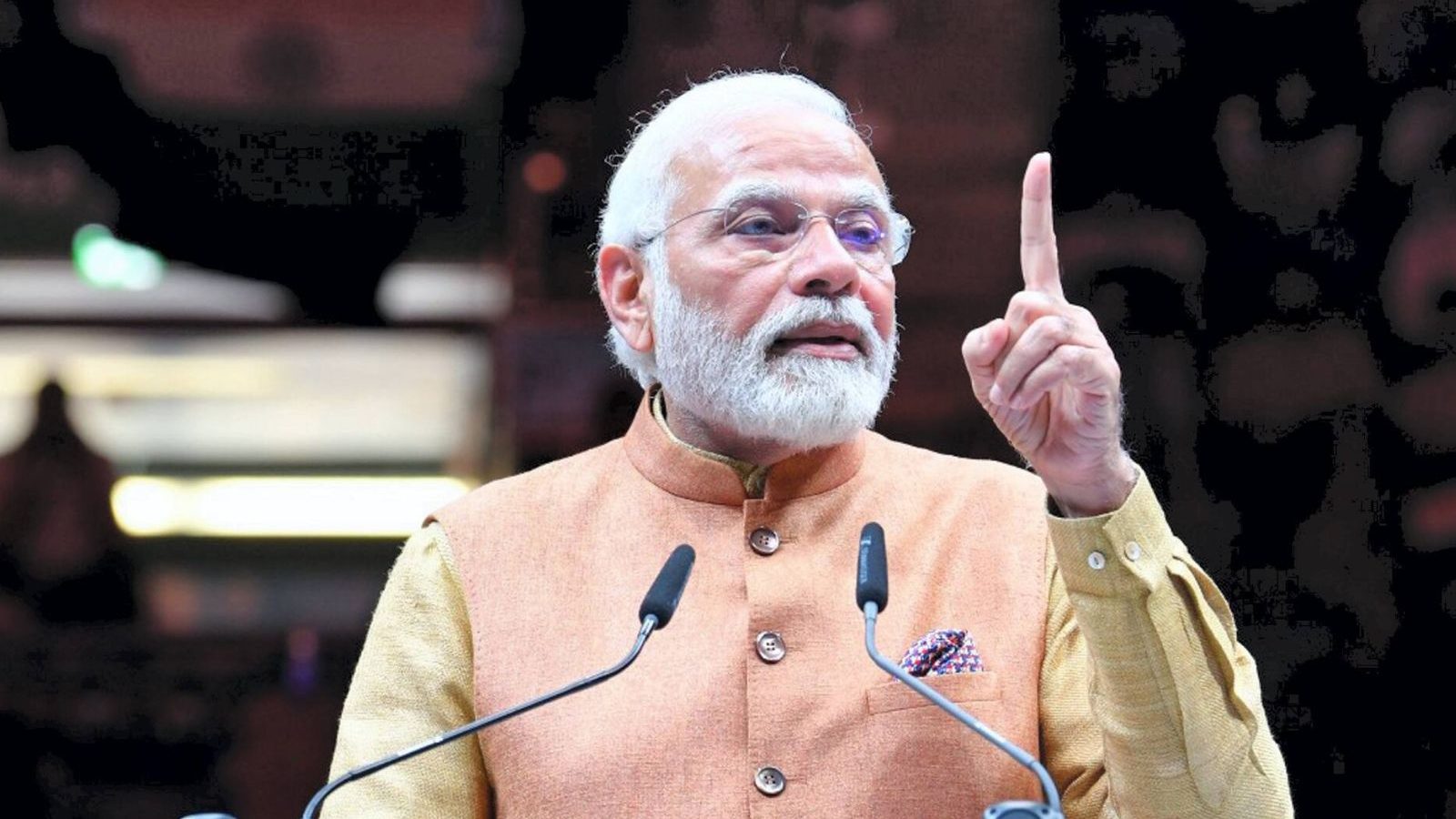PM Modi Says India is at the Forefront of Industry 4.0 Revolution
Prime Minister Narendra Modi, who arrived in Germany for a three-day visit to attend the G7 summit, said on June 26 that India is leading the Industry 4.0 revolution, while adding that the nation is excelling on all fronts, including information technology and digital technology.
In Munich, while addressing the Indian community, he also stated that India is the world’s second-largest maker of mobile phones and has the third-largest startup environment.
As reported by ANI, Modi said: “There was a time when India was nowhere in the race of startups. Today, we are the third-largest startup ecosystem. Similarly, we used to import even the simplest phones, today, we are the second-largest mobile phone manufacturer in the world.”
Additionally, he said: “In the last century, Germany and other countries took benefit from the industrial revolution. India was a slave back then that’s why it couldn’t leverage benefits. But now India will not be left behind in the 4th industrial revolution, it’s now leading the world.”
“Today, India is working on building a new legacy and this is being led by the youth of the country. We have brought 21st-century policies to the youth of New India. Today, our youth will be able to complete their education in their own mother tongues,” Modi stated.
What is Industry 4.0
The phrase “industry 4.0” and “fourth industrial revolution” are frequently used interchangeably. It is distinguished by the ideas such as:
• Increased automation over the third industrial revolution.
• The linking of the physical and digital worlds via cyber-physical systems made possible by Industrial IoT.
• A transition from a centralised industrial management system to one in which smart products determine the manufacturing procedures.
• Control systems and closed-loop data models.
• Product personalization/customization.
All around the world, it is actually transforming how businesses produce, enhance, and distribute their goods.
The concepts and technologies of Industry 4.0 can be applied to all types of industrial companies, including discrete and process manufacturing, as well as oil and gas, mining, and other industrial divisions.
The Internet of Things (IoT), cloud computing, analytics, AI, and machine learning are among the cutting-edge technology that manufacturers are incorporating into their manufacturing processes.
Advanced sensors, embedded software, and robotics are all featured in these smart factories, which collect and analyse data to help decision-making.
When operational data from ERP, supply chain, customer service, and other corporate systems is linked with data from production processes, even greater value from previously segregated information is produced.
According to IBM, “Developing smart factories provides an incredible opportunity for the manufacturing industry to enter the fourth industrial revolution. Analyzing the large amounts of big data collected from sensors on the factory floor ensures real-time visibility of manufacturing assets and can provide tools for performing predictive maintenance in order to minimize equipment downtime.”
However, it is also believed that higher productivity and better quality are the results of using cutting-edge IoT devices in smart manufacturing. Manufacturing errors are decreased, and money and time are saved when manual inspection business models are replaced with AI-powered visual insights.
A smartphone connected to the cloud can be easily set up by quality control workers to enable remote monitoring of manufacturing processes.
Manufacturers can identify mistakes earlier rather than later, when repair work is more expensive, by using machine learning algorithms.
Industry 4.0 in India
India has a unique chance to industrialise thanks to rapid technological improvement. India may use such technological advancements to reindustrialize itself with the right policy framework in place.
According to an analysis by McKinsey & Company, if Indian firms adopt essential Industry 4.0 technologies across numerous industries, including production, logistics, supply chain, and procurement, operational costs will increase by 40%, which is less than 10% of capital costs.
Additionally, advanced data analysis will improve the product’s quality and manufacturing efficiency. The prediction and avoidance of production faults will be a focus of business analytics. Automation will also shorten cycle times, reduce needless capital expenditure, and shorten manufacturing cycles.
Numerous production processes being digitalized will result in lower costs and a better customer experience. Similarly, supply chains will benefit from shorter lead times thanks to IoT and man-machine connections.
However, India is categorised as a legacy country in the 2018 Future of Production research by the World Economic Forum. It means that even while India excels in technology, innovation, and total demand potential, long-standing issues like a shortage of human capital and sustainability restrict its potential for future growth.
However, according to an op-ed by Badri Narayanan Gopalakrishnan, who is the Lead (Adviser) and Head, Trade and Commerce, NITI Aayog and Kannan Kumar, who is Trade and Commerce, NITI Aayog, in the Hindu Business Line, while in general, India’s prospects look bright, to prepare domestic businesses for the rapidly evolving technological landscape, policymakers would need to concentrate on the four sectors to bring in the fourth industrial revolution.
These include providing a social safety net, promoting R&D, enhancing human resources, boosting institutional capacity, and encouraging technology investments, said Gopalakrishnan and Kumar.
Read all the Latest News , Breaking News , watch Top Videos and Live TV here.
For all the latest Technology News Click Here

